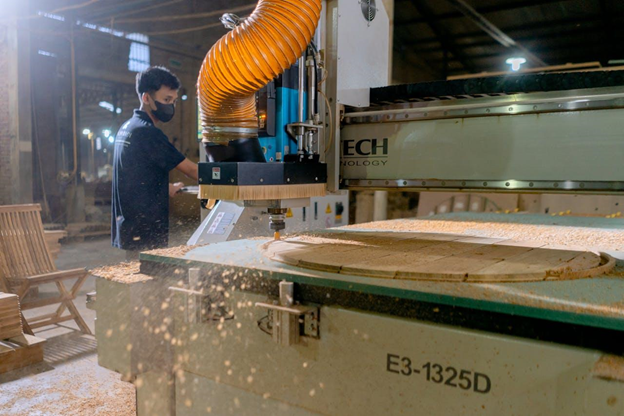CNC (Computer Numerical Control) machining has redefined the way products are manufactured today. From intricate designs to large-scale production runs, CNC technology offers a level of efficiency, accuracy, and reliability that conventional manufacturing methods often struggle to match.
But what makes CNC stand out in modern production? This post explores five significant benefits that highlight why CNC is the future of manufacturing.
Precision at Scale with CNC Cutting and Design
Precision is the backbone of modern manufacturing, and CNC machining delivers this with unparalleled consistency. CNC Cutting and Design machines are designed to follow programmed instructions down to microscopic measurements, ensuring that every cut, curve, and finish meets exacting standards.
This precision comes into play across a wide range of industries. For instance, in aerospace manufacturing, where tolerances of just a fraction of a millimeter can make a huge difference, CNC ensures that parts meet rigorous specifications.
Similarly, the medical field benefits from CNC’s capabilities to produce intricate surgical tools and equipment.
Increased Efficiency
Efficiency is everything in a competitive marketplace. Thanks to automation, CNC significantly reduces the time and labor needed to produce high-quality components. Once programmed, CNC machines can operate continuously, working for hours without breaks.
Manufacturers not only save on labor costs but also benefit from faster production timelines. For instance, a complex automotive part that might take hours of manual labor can be produced by a CNC machine in a fraction of the time.
This improved efficiency boosts overall business performance, allowing companies to handle larger orders, reduce lead times, and ultimately meet customer demands more effectively.
Flexibility and Customization
The ability to adapt to changing requirements or product designs is crucial in today’s fast-paced industries. CNC offers unparalleled flexibility, as retooling is no longer necessary for design updates. Just a few adjustments to the machine’s software can accommodate a new part or specification.
This is particularly beneficial for industries like fashion and product development, where trends are constantly changing. Think of a custom furniture manufacturer that needs to switch from one tabletop design to another within hours.
Improved Safety and Quality Control
Workplace safety is a priority for manufacturers, and CNC machines help create a safer environment. With automation taking over manual tasks, workers are less exposed to dangerous cutting tools and machinery. This significantly reduces the risk of injuries and accidents on the factory floor.
CNC also plays a critical role in ensuring consistent, high-quality output. Since machines operate based on precise programming, there is little room for error during production. Components undergo meticulous quality checks during and after the machining process, ensuring uniformity across every unit.
Environmental Sustainability
CNC manufacturing supports eco-friendly practices in several ways. For one, the precision of CNC machines results in less material waste. Unlike manual methods, where errors and rework contribute to wasted resources, CNC minimizes these inefficiencies by getting it right the first time.
Additionally, CNC machines are designed to manage energy consumption efficiently. Many modern CNC systems incorporate features like power-saving modes, dramatically reducing their carbon footprint.



